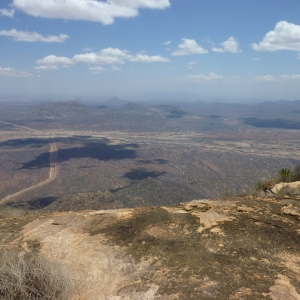Federal Water Tap, May 13: PFAS Week in Congress
The Rundown
A barrage of PFAS legislation appears in the House and Senate. The House passes a $19.1 billion disaster aid package for recent flood, fire, and hurricane damage. The CDC reports a substantial increase in Hepatitis A cases. The chairman of the House Natural Resources Committee says he will investigate federal approval of a massive housing development in southern Arizona. NOAA forecasters see a more severe Lake Erie harmful algal bloom this year. And lastly, another busy week of congressional hearings on climate change, PFAS, weather forecasting, and more.
“Our constituents have a right to clean drinking water. The more we learn about these chemicals, the clearer the danger becomes which is why the American people deserve to know where these toxins are used. In communities across the country, PFAS chemicals have poisoned the drinking water of countless Americans and we must act swiftly to stop the spread of these dangerous chemicals and hold those responsible for this crisis accountable.” — Rep. Brian Fitzpatrick (R-PA) discussing, in a statement, the need for more disclosure of chemical flows. Fitzpatrick co-sponsored a bill that requires companies to report the quantity of PFAS chemicals they release to land, water, and air.
By the Numbers
$19.1 billion: Disaster aid package that the House passed last week. (House of Representatives)
294 percent: Increase in Hepatitis A cases in the United States in 2016 through 2018, compared with the previous three-year period. (Centers for Disease Control and Prevention)
News Briefs
PFAS Proposals In Congress
Call it PFAS Week.
Representatives from both parties joined to release a half dozen bills in response to PFAS contamination. The bills aim for greater transparency in reporting chemical flows, more dollars for communities confronted with the cost of treating contaminated water, and more prohibitions on products with PFAS compounds. Those bills are:
- The PFAS Right-to-Know Act adds PFAS chemicals to the Toxics Release Inventory, a move that would require companies to disclose annually the quantity of PFAS compounds they release to air, land, and water.
- The PFAS Federal Facility Accountability Act, introduced by a bipartisan group of Michigan representatives, requires federal departments to follow state rules for PFAS cleanup. The unwillingness of the Air Force to adhere to Michigan’s groundwater standards is an ongoing issue in that state.
- The PFAS Waste Incineration Ban Act requires the EPA to prohibit the burning of firefighting foam with PFAS chemicals as a means of disposal. A related bill directs the agency to issue guidelines for reducing use of such foams.
- The PFAS User Fee Act from Rep. Harley Rouda (D-CA) requires PFAS manufacturers to pay into a trust fund, from which grants will be given to affected communities to pay for water treatment costs.
- The PFAS Drinking Water Act from Rep. Frank Pallone offers an alternative for helping communities with the cost of treating contaminated water. The bill authorizes $500 million per year over five years for grants to utilities under a program administered by the EPA.
In context: As PFAS Lawsuits Proliferate, Legal Tactics Emerge
Disaster Aid
Despite opposition from the White House, the House passed a $19.1 billion disaster aid bill to cover damages from hurricanes Florence and Michael, wildfires, and flooding in the Midwest.
Some $2.7 billion is directed to the Army Corps to repair levees damaged in the Missouri River basin and respond to coastal flooding.
More than $3 billion will compensate farmers for crop damage.
Before the vote, President Trump called the legislation a “BAD DEMOCRAT” bill.
Potential House Investigation Into Arizona Housing Development
Rep. Raul Grijalva (D-AZ), the chairman of the House Natural Resource Committee, said that he will investigate a whistleblower’s claims of wrongdoing related to federal approval of a large housing development in southern Arizona that could affect water and wildlife.
Steve Spangle, a former U.S. Fish and Wildlife official, told the Arizona Daily Star that he was pressured into reversing a decision that more detailed study of the environmental impact of a proposed 28,000-home development was necessary.
Great Lakes Farm Pollution Bill
Representatives from Michigan and Ohio introduced a bipartisan bill that establishes a federal grant program for reducing polluted farm runoff in the Great Lakes basin.
The bill authorizes $30 million over four years.
Flood Insurance Program Extension Introduced
Rep. Maxine Waters (D-CA) introduced a short-term extension of the National Flood Insurance Program: four months, until the end of September 2019. Flooding is the most expensive natural hazard in the United States.
Studies and Reports
Rising Number of Hepatitis A Cases
There was “an alarming increase” in the number of Hepatitis A cases in the country in the last five years, according to a Centers for Disease Control and Prevention report.
The number of cases soared to more than 15,000 nationwide in 2016 through 2018, up from 4,410 in the previous three-year period. The rise is attributable in large part to drug use and homelessness.
“Vaccination is the most powerful tool we have to stop these outbreaks now and prevent similar ones in the future,” Monique Foster, a CDC epidemiologist, told Circle of Blue. “CDC is encouraging health departments in affected areas to vaccinate people who report substance use and people experiencing homelessness.”
In context: California Hepatitis A Outbreak Has Killed 19 People
Lake Erie Algae Forecast
NOAA researchers published their first Lake Erie algae forecast of the year. Because of heavy rains in April, they expect the lake’s annual algal bloom to be more severe than last year.
The bloom usually peaks in August and September. This initial forecast, scientists warn, has substantial uncertainties that will be clearer within the next two months.
Drought Research
NASA scientists contributed to a paper that assessed the causes of “flash” droughts — those that develop rapidly and with little warning. They found that evaporation rates play a role, but the greater contributor is a prolonged rainfall deficit.
On the Radar
Congressional Hearings
Another busy slate this week:
- On May 15, the House Energy and Commerce Committee holds a hearing on PFAS contamination. Committee members introduced a number of bills in recent weeks addressing the class of toxic chemicals.
- On May 15, the House Ways and Means Committee examines the economic and health consequences of climate change. Senate Democrats released a report last month on the economic costs of warming temperatures.
- On May 15, the Senate Committee on Environment and Public Works looks at oversight of the Council of Environmental Quality, the White House office in charge of implementing federal environmental reviews.
- On May 16, the House Natural Resources Committee discusses water pollution from oil and gas development.
- On May 16, the House Science Committee looks at U.S. weather forecasting capabilities.
Water Reuse Plan Webinar
The WateReuse Association holds a webinar on May 21 to discuss the EPA’s development of a national plan for water reuse. Participating on the call will be Jeff Lape, deputy director of the EPA Office of Science and Technology, and Sharon Nappier, a senior microbiologist in the Office of Water. Registration is free.
The EPA announced in February that it would develop a reuse plan. The agency, with state and industry backing, is already looking into options for reusing wastewater from oil and gas drilling.
Federal Water Tap is a weekly digest spotting trends in U.S. government water policy. To get more water news, follow Circle of Blue on Twitter and sign up for our newsletter.
Brett writes about agriculture, energy, infrastructure, and the politics and economics of water in the United States. He also writes the Federal Water Tap, Circle of Blue’s weekly digest of U.S. government water news. He is the winner of two Society of Environmental Journalists reporting awards, one of the top honors in American environmental journalism: first place for explanatory reporting for a series on septic system pollution in the United States(2016) and third place for beat reporting in a small market (2014). He received the Sierra Club’s Distinguished Service Award in 2018. Brett lives in Seattle, where he hikes the mountains and bakes pies. Contact Brett Walton






Leave a Reply
Want to join the discussion?Feel free to contribute!